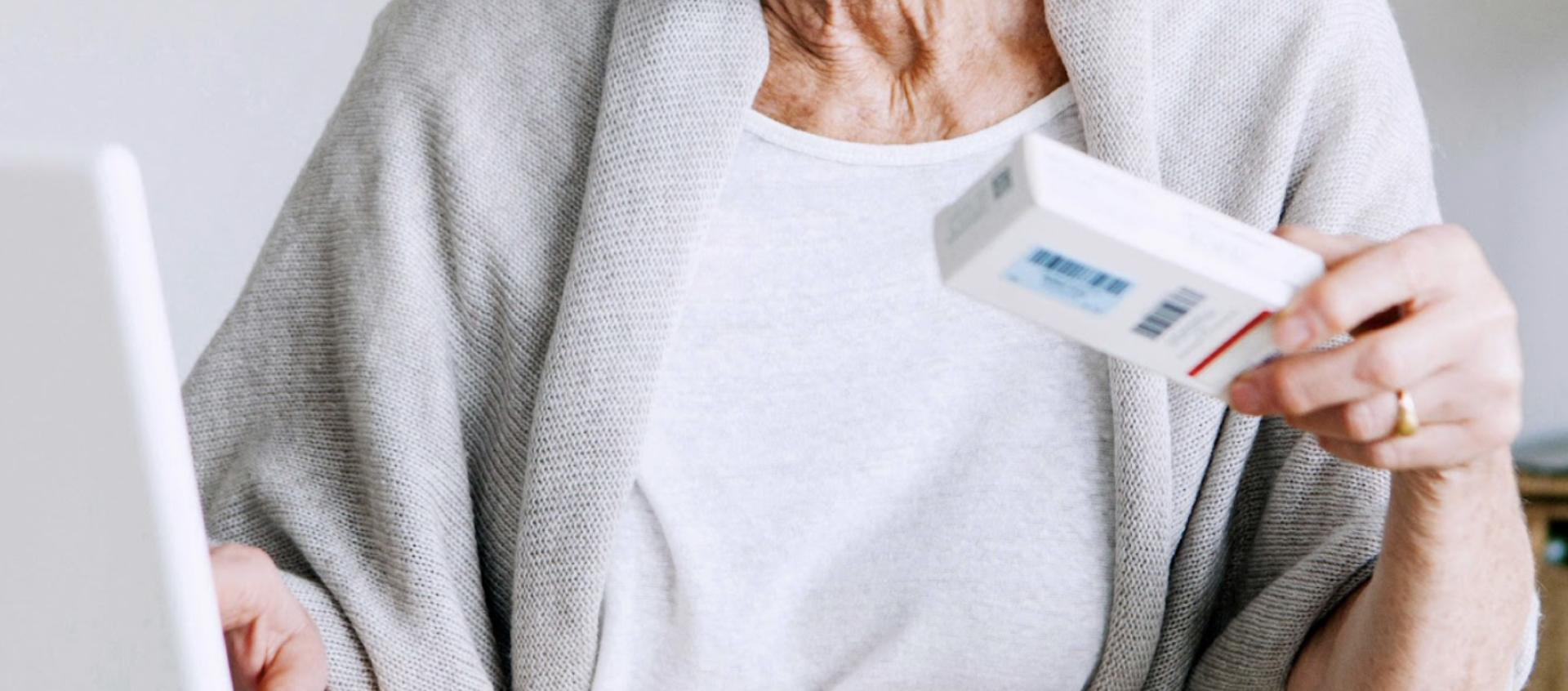HIPAA compliant app development
The basics of HIPAA compliance for software development
Any healthcare application that handles confidential patient data — whether through reception, transmission, or processing — must rigorously follow HIPAA protocols. This means adhering to the standards defined under the Health Insurance Portability and Accountability Act (HIPAA). This 1996 legislation was enacted in the US to protect the privacy of patient health information.

HIPAA compliance involves using tech methods like encrypting digital records, ensuring data integrity, and controlling who can see or change patient info.

Additionally, it includes provisions for regular risk assessments and audits to ensure continuous health data protection.
Non-compliance not only risks severe legal ramifications and fines, but also damages the trust and reputation of a healthcare provider. It underscores the importance for developers to rigorously follow HIPAA guidelines in designing and maintaining any healthcare application that handles patient data.
What kind of data is regulated by HIPAA?
For healthcare app developers on the path to HIPAA compliance, it's vital to comprehensively understand the nature of the data your application processes.
IIHI and PHI: definitions, HIPAA regulations, and regulatory rules
Individually Identifiable Health Information (IIHI)
Protected Health Information (PHI)
Definition
Individually Identifiable Health Information (IIHI)
IIHI refers to health-related data that identifies individuals based on their health status, received services, or payment details. It can include common individual identifiers like name, address, or social security number.
Protected Health Information (PHI)
PHI encompasses all data that can identify a person within a medical setting, and has been generated, utilized, or revealed while providing healthcare services — including diagnosis and treatment.
HIPAA regulation of data
Individually Identifiable Health Information (IIHI)
Any IIHI that doesn't qualify as PHI is exempt from HIPAA regulations. This encompasses, but is not limited to:
-
Combined aggregated statistics from several individuals
-
General geographical data tied to larger areas like counties or states rather than precise locations
-
Broad age categories
-
Vague time frames
-
General ethnicity or race classifications
-
Non-specific gender information
-
Randomized identifiers for individuals that can't be traced back to their actual identities
-
Modified or obscured identifiers
-
Omitted specific details
Protected Health Information (PHI)
PHI is always subject to HIPAA regulations and includes a diverse array of information:
-
Full patient names
-
Geographic identifiers
-
Significant dates related to an individual’s health or identity
-
Contact information, including phone and fax numbers
-
Email addresses
-
Medical record identifiers
-
Health insurance details and bank account numbers
-
Certificate/license numbers and vehicle identifiers
-
Device characteristics or serial numbers
-
Online digital identifiers and IP addresses
-
Biometric data, including fingerprints, retinal scans, and voiceprints, as well as patient photographs
Regulatory rule
Individually Identifiable Health Information (IIHI)
No specific regulatory act
Protected Health Information (PHI)
What are the penalties for violation of HIPAA?
As per The HIPAA Journal, financial penalties for violating HIPAA are divided into four tiers, each aligning with the severity of the violation.
From $100 per violation to $50K
Instances where the covered entity was unaware and, realistically, couldn't prevent the violation — despite exercising reasonable care.
From $1K per violation to $50K
These instances involve scenarios where the covered entity, despite due diligence, was aware, but couldn't prevent the violation.
From $10K per violation to $50K
Cases of willful neglect of HIPAA rules, even if corrective action was later taken.
From $50K per violation
Violations that arise from willful neglect of HIPAA rules with no attempts at correction within 30 days.
The OCR determines the financial penalty within the specified range for each category, considering the following factors:
Duration of the violation
Number of individuals affected
The nature of the data compromised
Cooperation during the investigation
Past compliance history
The financial condition of the entity
Extent of harm caused
These updated penalty rates, effective from October 6, 2023, apply to violations occurring after November 2, 2015.
Total HIPAA settlements and civil monetary penalties (2015 - November 2023)
Source: The HIPАA Journal

Need expert advice on HIPAA compliance for your healthcare application?
Let our knowledgeable healthcare consultants lead you through the maze of compliant technology solutions.
HIPAA software development guidelines
Crafting software that meets HIPAA standards demands a thorough understanding of numerous regulations. Key aspects include selecting vendors knowledgeable in HIPAA, assembling the right development team, and effective budget management.
Understanding these elements is key to securing HIPAA adherence in healthcare applications and lessening the likelihood of risks and penalties.
Choose the right vendor
Prioritize vendors with a demonstrated healthcare sector history; request references and detailed case studies to assess their experience.
Investigate their security measures, focusing on data encryption, user access management, and adherence to secure software development practices.
Confirm their readiness to sign a Business Associate Agreement as part of HIPAA compliance requirements.
Gain a clear understanding of their PHI management practices, which should cover storage, transmission, and secure disposal.
Evaluate their incident response strategy to ensure it’s robust and aligned with HIPAA standards.
Look for vendors offering scalable and adaptable solutions that can accommodate the dynamic needs of healthcare software.
Determine the timeline and budget
The time and expense required to create a minimum viable product (MVP) in healthcare software can vary greatly. Insights from resources like Clutch suggest a general average for the cost of HIPAA-compliant software development:
Initial cost
Time for MVP development
Telemedicine platform
Initial cost
$150K
Time for MVP development
From 3 to 6 months
EHR system
Initial cost
$500K
Time for MVP development
From 6 to 12 months
Health and wellness app
Initial cost
$60K
Time for MVP development
From 3 to 6 months
Patient engagement portal
Initial cost
$100K
Time for MVP development
From 4 to 8 months
AI medical imaging software
Initial cost
$500K
Time for MVP development
From 6 to 12 months
Clinical decision support system
Initial cost
$300K
Time for MVP development
From 6 to 12
Healthcare analytics platform
Initial cost
$200K
Time for MVP development
From 6 to 12 months
Remote patient monitoring system
Initial cost
$200K
Time for MVP development
From 4 to 8 months
Assemble a team
Based on your project's size and complexity, you may require IT professionals of various specializations:

HIPAA and legal compliance consultant
This expert oversees the adherence to HIPAA regulations during the entire HIPAA compliance application development process.
Business analyst
The BA serves as a bridge between the technical team and business stakeholders, ensuring the software fulfills all operational and functional requirements.
Software architect
These specialists ensure the system’s architecture meets both HIPAA's security standards and scalability demands.
Software developers
Software developers leverage their expertise in cutting-edge technologies to craft healthcare solutions that adhere to HIPAA compliance standards.
Project manager
The PM coordinates the team, manages timelines, and ensures the project meets HIPAA requirements.
Security analyst
Security analysts evaluate and mitigate security risks, implement secure coding practices, and perform routine security assessments to ensure robust protection.
UI/UX designers
They design user-friendly interfaces that comply with accessibility norms, aiming to enhance the experience of healthcare professionals and patients.
DevOps engineers
DevOps developers specialize in automating deployment processes, securely managing infrastructure, and ongoing system monitoring.
HIPAA compliance checklist for software development
When making your first steps in HIPAA compliance software development, it's crucial to focus on privacy and security aspects. Refer to this checklist as a roadmap for creating a HIPAA-compliant application.
Implement encryption techniques to protect sensitive health information in storage and transmission.
- Transport layer security (TLS)
- Advanced encryption standard (AES)
- Rivest–Shamir–Adleman RSA
- Elliptic curve cryptography (ECC)
- Secure hash algorithm (SHA)
- End-to-end encryption
Establish robust access controls to ensure only authorized individuals have access to PHI.
- Role-based access control (RBAC)
- User IDs
- Session management
- Data masking
- Data encryption during transmission and storage
Create and keep detailed audit logs to track access, changes, and other activities related to PHI.
- Events logging
- Time stamps
- Device identification
- Action details
- Failed access attempts
- Encryption status
- Security alerts
- Integration of security information and event management (SIEM)
Introduce robust authentication protocols to verify user identities and their respective authorization levels.
- Multi-factor authentication (MFA)
- Strong password policies
- Biometric authentification
- Single sign-on (SSO
- User lockout
- Attribute-based access control (ABAC)
- Emergency access
- Secure API authorization
Choose cloud services or hosting providers that comply with HIPAA regulations and are willing to enter into a Business Associate Agreement.
- AWS
- Microsoft Azure
- Google Cloud Platform
- IBM Cloud
- Oracle Cloud Infrastructure
- Rackspace
- Datica
- Atlantic.Net
- Cerner hosting
Ensure the secure and encrypted transmission of PHI across networks.
- TLS
- VPN
- SFTP
- HTTPS
- OAuth for secure API
- Managed file transfer (MFT)
- Point-to-Point Encryption (P2PE)
- Digital signature manager (DSM)
- Intrusion detection and prevention systems (IDPS)
Conduct regular data backups and test recovery procedures to ensure data availability in case of emergencies.
- Cloud backup or on-premises solutions
- Backup schedule
- Incremental and full backups data versioning and de-identification
- Secure backup storage
Develop a comprehensive strategy for responding to and reporting any potential data breaches, as HIPAA requires.
- Incident reporting
- Response team assignment
- Investigation
- Notification of HHS(Health and Human Services), affected individuals, and business associates
Vention is a HIPAA-compliant app development company
Vention has been leading the way in creating healthcare solutions that meet all the vital regulations for over 20 years. Our deep knowledge of healthcare, combined with our dedication and tech know-how, means we deliver software that really makes a difference.
Let us be the architects of your continued success in an ever-evolving healthcare landscape.
-
HIPAA and legal consulting
-
Custom healthcare solutions
-
Software modernization
-
AI, data, and other solutions integration
-
Estimation of costs, ROI, and a payback period
-
Technical and legal consulting
-
Custom mobile app development
-
IoT (IoMT) enablement
-
Chatbot implementation
-
Security assurance
Hear from our expert
With decades of experience under his belt, Eugene Kruglik, our healthcare development expert, possesses an in-depth understanding of HIPAA compliance and a clear vision of how to resolve HIPAA challenges that our clients may face.
Why choose Vention
Billions in funding raised by our healthcare clients
Solutions compliant with HL7, HIPAA, GDPR, and PCI DSS
healthtech projects completed
less time to market
Our awards














